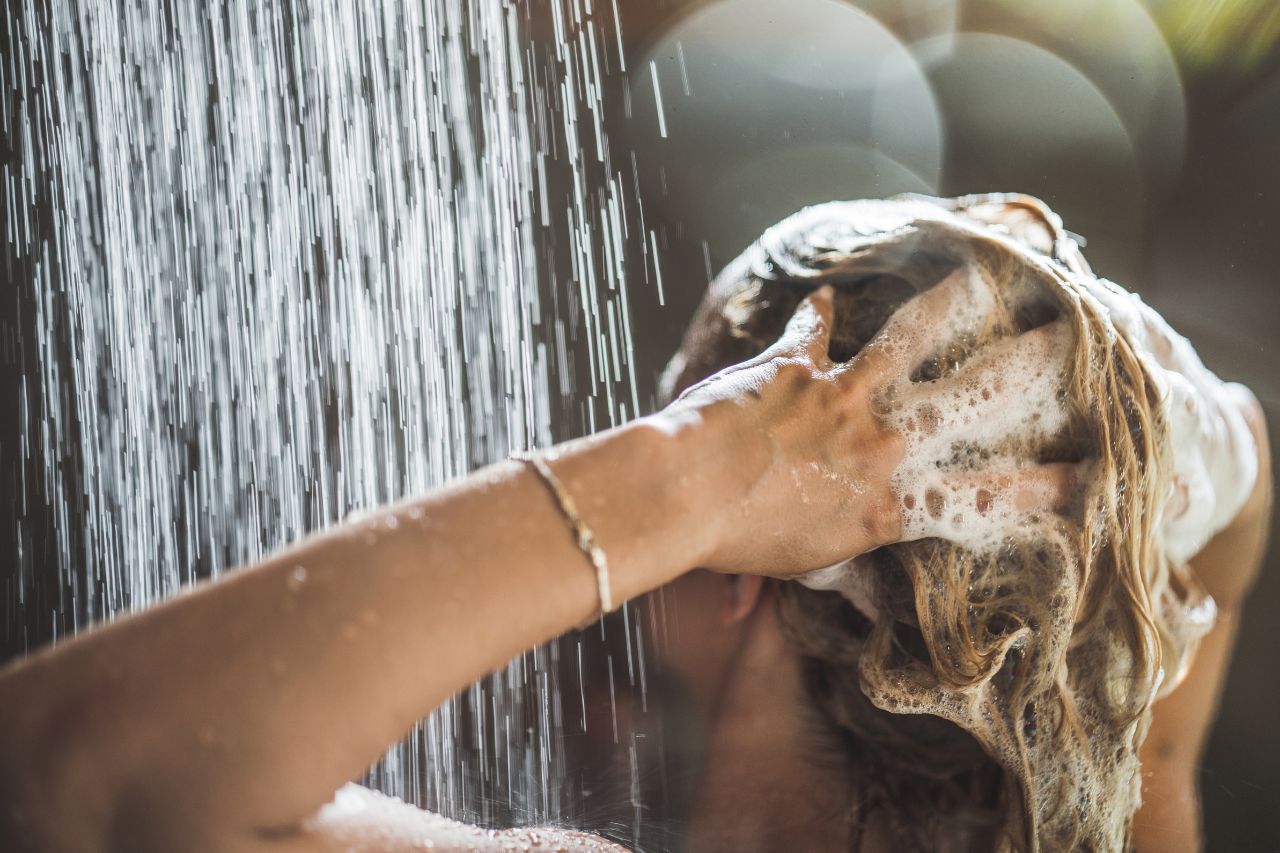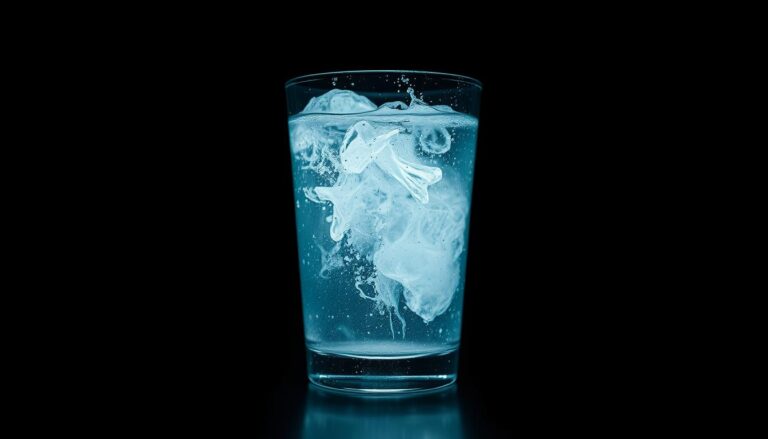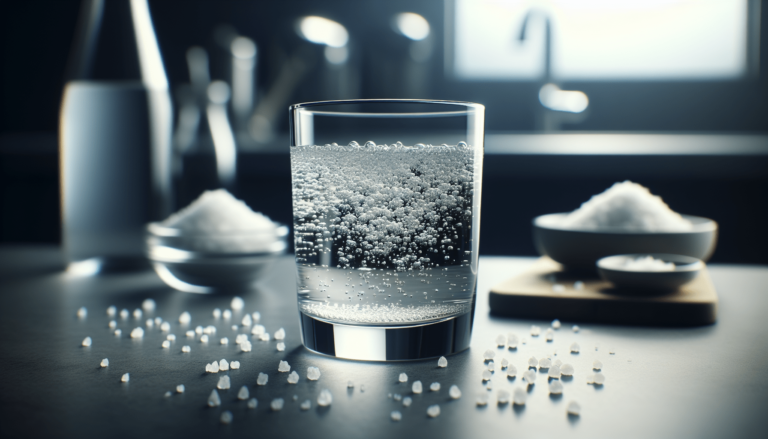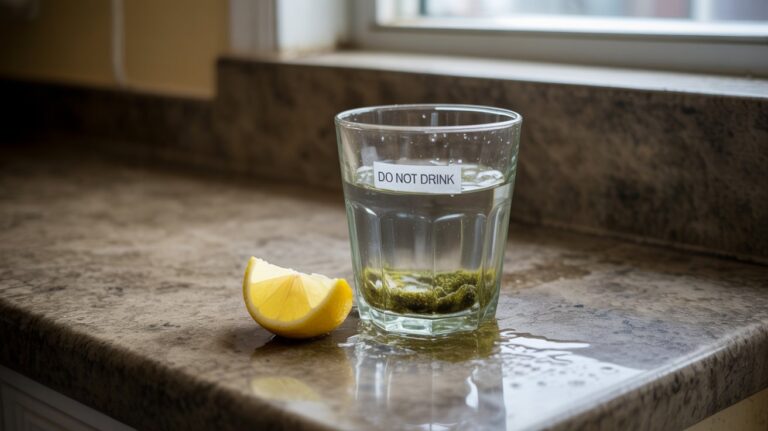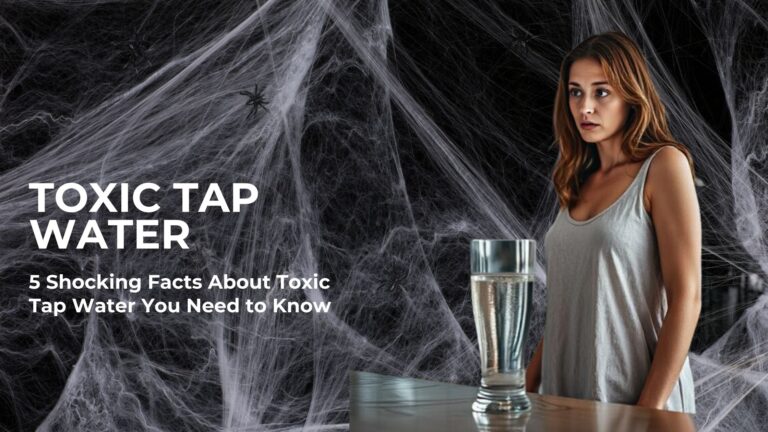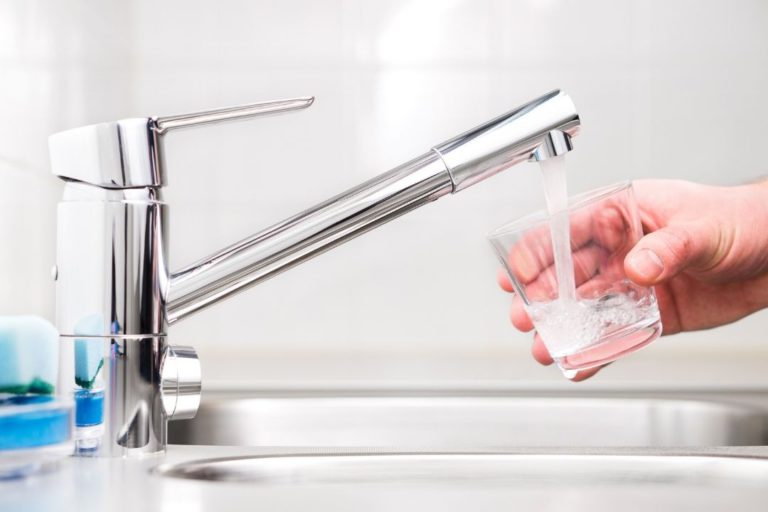Hard Water Woes: The Impact on Your Hair and Skin Health
Highlights:
- Hard water, high in minerals like calcium and magnesium, can cause dry, dull hair and irritated skin.
- Signs of hard water include limescale buildup and difficulty producing lather with soap or shampoo.
- Hard water affects hair by stripping natural oils, making it brittle and less responsive to products.
- Hard water affects skin by disrupting its natural balance, leading to dryness, irritation, and breakouts.
Tired of dry, lifeless hair and rough, irritated skin? You may be dealing with the effects of hard water. Hard water, high in minerals like calcium and magnesium, can harm your hair and skin. From dull, brittle hair to dryness and irritation, hard water’s impact is often underestimated. In this article, we explore how hard water affects your hair and skin and share expert tips to restore their health and vitality. Say goodbye to hard water woes and dive into our solutions now!
Understanding hard water
Hard water is a common problem that many people face in their daily lives. It is characterized by the presence of high levels of minerals, particularly calcium and magnesium, in the water. These minerals can build up on your hair and skin, leaving them feeling dry, dull, and lifeless. The minerals in hard water can also interfere with the effectiveness of your hair and skincare products, making it harder for them to do their job. Additionally, the minerals in hard water can clog your pores, leading to breakouts and other skin issues.
The hardness of water can vary depending on where you live, with some areas experiencing more severe effects than others. If you’re unsure whether you have hard water, there are a few signs to look out for. One common indicator is the presence of limescale, a white, chalky residue that can accumulate on your faucets, showerheads, and other fixtures. Another sign is the difficulty of producing lather with soap or shampoo, as hard water tends to reduce the effectiveness of these products. Now that we have a better understanding of what hard water is, let’s explore its effects on your hair and skin.
Effects of hard water on hair

Hard water can have a detrimental effect on the health and appearance of your hair. The minerals in hard water can strip your hair of its natural oils, leaving it dry, brittle, and prone to breakage. Over time, this can lead to split ends and hair that lacks shine and vitality. The buildup of minerals on your hair can also make it more difficult for moisture to penetrate the shaft, resulting in hair that feels rough and tangled.
In addition to these aesthetic issues, hard water can also impact the effectiveness of your hair care products. The minerals in hard water can react with the ingredients in your shampoo and conditioner, causing them to become less effective. This means that even if you’re using high-quality products, you may not be getting the results you desire. To make matters worse, the buildup of minerals on your hair can also prevent other styling products, such as serums and oils, from being absorbed properly. This can make it harder to achieve the desired look and can leave your hair feeling weighed down and greasy.
Effects of hard water on skin
Just like your hair, your skin can suffer from the effects of hard water as well. The minerals in hard water can disrupt the natural balance of your skin, leading to dryness, irritation, and even acne. When hard water comes into contact with your skin, it can leave behind a film of mineral residue. This can clog your pores, making it difficult for your skin to breathe and resulting in breakouts and blackheads. The minerals in hard water can also strip your skin of its natural oils, leaving it feeling dry and tight.
If you have sensitive skin, you may be especially susceptible to the effects of hard water. The minerals in hard water can exacerbate existing skin conditions, such as eczema and psoriasis, making them more difficult to manage. Hard water can also cause itching and redness, leaving your skin feeling irritated and uncomfortable. To protect your skin from the damaging effects of hard water, it’s important to take steps to minimize its impact.
Common symptoms of hard water damage
Now that we’ve explored the effects of hard water on your hair and skin, let’s take a closer look at some common symptoms of hard water damage. If you’re experiencing any of these issues, it may be a sign that you have hard water in your home. One of the most obvious signs is dry, dull, and brittle hair. If your hair feels rough to the touch and lacks shine, it could be a result of hard water. Another common symptom is dry and itchy skin. If your skin feels tight and irritated, even after applying moisturizer, hard water may be to blame.
Other symptoms of hard water damage can include increased hair loss, scalp irritation, and breakouts on your face and body. If you’ve noticed an increase in these issues, it’s worth considering whether hard water could be the culprit. By identifying the symptoms of hard water damage, you can take steps to address the problem and restore the health and vitality of your hair and skin.
Tips for dealing with hard water
Dealing with hard water doesn’t have to be a constant struggle. There are several tips and tricks you can use to minimize the impact of hard water on your hair and skin. One of the simplest ways to combat the effects of hard water is to invest in a water softener. A water softener is a device that removes the minerals from your water, leaving it soft and free from impurities. By installing a water softener in your home, you can protect your hair and skin from the damaging effects of hard water.
Another option is to use a clarifying shampoo and conditioner. These products are specifically designed to remove buildup and residue from your hair, including the minerals found in hard water. By incorporating a clarifying shampoo and conditioner into your hair care routine, you can help restore the health and shine of your hair. It’s important to note that clarifying products can be drying, so be sure to follow up with a hydrating conditioner to keep your hair moisturized.
When it comes to your skincare routine, it’s important to choose products that are gentle and hydrating. Look for cleansers that are free from harsh ingredients, such as sulfates and alcohol, as these can strip your skin of its natural oils. Opt for a moisturizer that is rich in hydrating ingredients, such as hyaluronic acid and ceramides, to replenish moisture and protect your skin’s barrier. Additionally, using a gentle exfoliator can help slough off dead skin cells and prevent clogged pores.
How to protect your hair from hard water
Protecting your hair from the damaging effects of hard water requires a few extra steps in your hair care routine. One of the most effective ways to protect your hair is to use a leave-in conditioner. A leave-in conditioner can create a barrier between your hair and the minerals in hard water, helping to seal in moisture and prevent damage. Apply a small amount of leave-in conditioner to damp hair after washing and conditioning, focusing on the ends where your hair is most prone to dryness and breakage.
Another tip is to rinse your hair with filtered or distilled water after washing. This can help remove any residual minerals and leave your hair feeling softer and more manageable. You can easily create a DIY rinse by filling a spray bottle with filtered or distilled water and spritzing it onto your hair after washing. Alternatively, you can invest in a shower filter that attaches to your showerhead and removes impurities from the water.
In addition to these tips, it’s important to avoid over-styling your hair with heat tools. Heat can further strip your hair of moisture, making it more susceptible to the effects of hard water. If you do use heat tools, be sure to use a heat protectant spray to minimize damage. Finally, consider incorporating a deep conditioning treatment into your weekly hair care routine. A deep conditioner can help repair and nourish your hair, leaving it soft, shiny, and healthy.
How to protect your skin from hard water
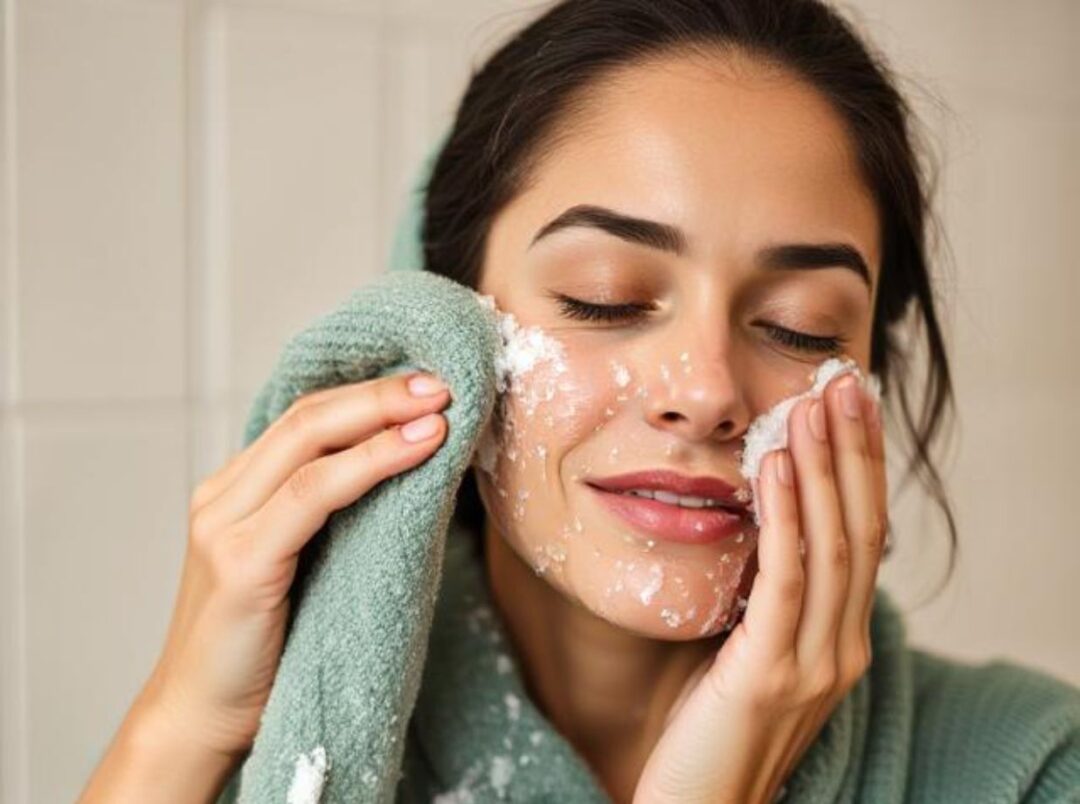
Protecting your skin from the damaging effects of hard water starts with a gentle and hydrating skincare routine. Avoid using harsh cleansers that can strip your skin of its natural oils and opt for a mild, pH-balanced cleanser instead. Look for cleansers that are specifically formulated for sensitive or dry skin, as these will be gentle enough to use daily. After cleansing, be sure to follow up with a moisturizer that is suitable for your skin type. Look for moisturizers that are free from artificial fragrances and colors, as these can irritate your skin.
To further protect your skin, consider using a facial mist throughout the day. A facial mist can help hydrate and refresh your skin, as well as provide a barrier against the minerals in hard water. Look for a mist that contains hydrating ingredients, such as aloe vera or rose water, and spritz it onto your face whenever your skin feels dry or tight. Additionally, using a weekly face mask can help replenish moisture and nourish your skin. Look for masks that contain ingredients like hyaluronic acid or ceramides, as these can help restore the natural balance of your skin.
In addition to these tips, it’s important to drink plenty of water to keep your skin hydrated from the inside out. Drinking water helps flush out toxins and can improve the overall health and appearance of your skin. Additionally, be sure to protect your skin from the sun by using a broad-spectrum sunscreen with SPF 30 or higher. Sun exposure can further dry out your skin and make it more susceptible to the effects of hard water.
Products and treatments for hard water damage
If you’re dealing with severe hard water damage, there are several products and treatments that can help restore the health and vitality of your hair and skin. For your hair, consider using a chelating shampoo. Chelating shampoos are specifically formulated to remove mineral buildup from your hair, leaving it feeling clean and refreshed. They work by binding to the minerals and removing them from your hair shaft. Use a chelating shampoo once a week or as needed to keep your hair free from buildup.
For your skin, consider incorporating a chemical exfoliant into your skincare routine. Chemical exfoliants, such as alpha hydroxy acids (AHAs) or beta hydroxy acids (BHAs), can help remove dead skin cells and unclog pores. They can also help improve the texture and tone of your skin, leaving it looking bright and refreshed. Start by using a low concentration of a chemical exfoliant once or twice a week, and gradually increase the frequency as your skin adjusts.
If you’re looking for more intensive treatments, consider visiting a salon or spa for a professional hair or skin treatment. For your hair, a deep conditioning treatment or hair mask can help replenish moisture and repair damage. These treatments often contain ingredients like keratin or argan oil, which can help restore the health and vitality of your hair. For your skin, consider getting a facial that is specifically designed to address the effects of hard water. A professional esthetician can assess your skin’s needs and recommend a treatment that will help restore balance and hydration.
DIY remedies for hard water problems
If you prefer a more natural approach, there are several DIY remedies that can help alleviate the effects of hard water on your hair and skin. One simple remedy is to rinse your hair and skin with diluted apple cider vinegar. Apple cider vinegar is acidic and can help remove mineral buildup from your hair and skin. To create a rinse, mix equal parts apple cider vinegar and water and apply it to your hair or skin after washing. Leave it on for a few minutes, then rinse thoroughly with water.
Another DIY remedy is to create a homemade hair mask using ingredients that are known for their hydrating properties. One popular option is to combine mashed avocado with honey and olive oil. Avocado is rich in healthy fats and vitamins that can help nourish and hydrate your hair. Honey is a natural humectant, meaning it attracts and retains moisture, while olive oil is known for its moisturizing and smoothing properties. Apply the mask to damp hair, focusing on the ends, and leave it on for 20-30 minutes before rinsing.
For your skin, consider using a DIY facial steam to help open up your pores and remove impurities. Fill a bowl with hot water and add a few drops of essential oils, such as lavender or tea tree oil. Place a towel over your head and lean over the bowl, allowing the steam to envelop your face. Stay in this position for 5-10 minutes, taking deep breaths and allowing the steam to work its magic. Afterward, rinse your face with cool water to close your pores and pat dry.
Conclusion
Dealing with hard water can be a frustrating and ongoing battle, but with the right tips and tricks, you can protect your hair and skin from its damaging effects. By understanding the impact of hard water and taking steps to minimize its effects, you can restore the health and vitality of your hair and skin. Whether it’s investing in a water softener, using the right hair and skincare products, or trying DIY remedies, there are plenty of options to help you combat hard water woes. So, don’t let hard water get in the way of your hair and skin goals. Take action today and say goodbye to hard water woes once and for all!

